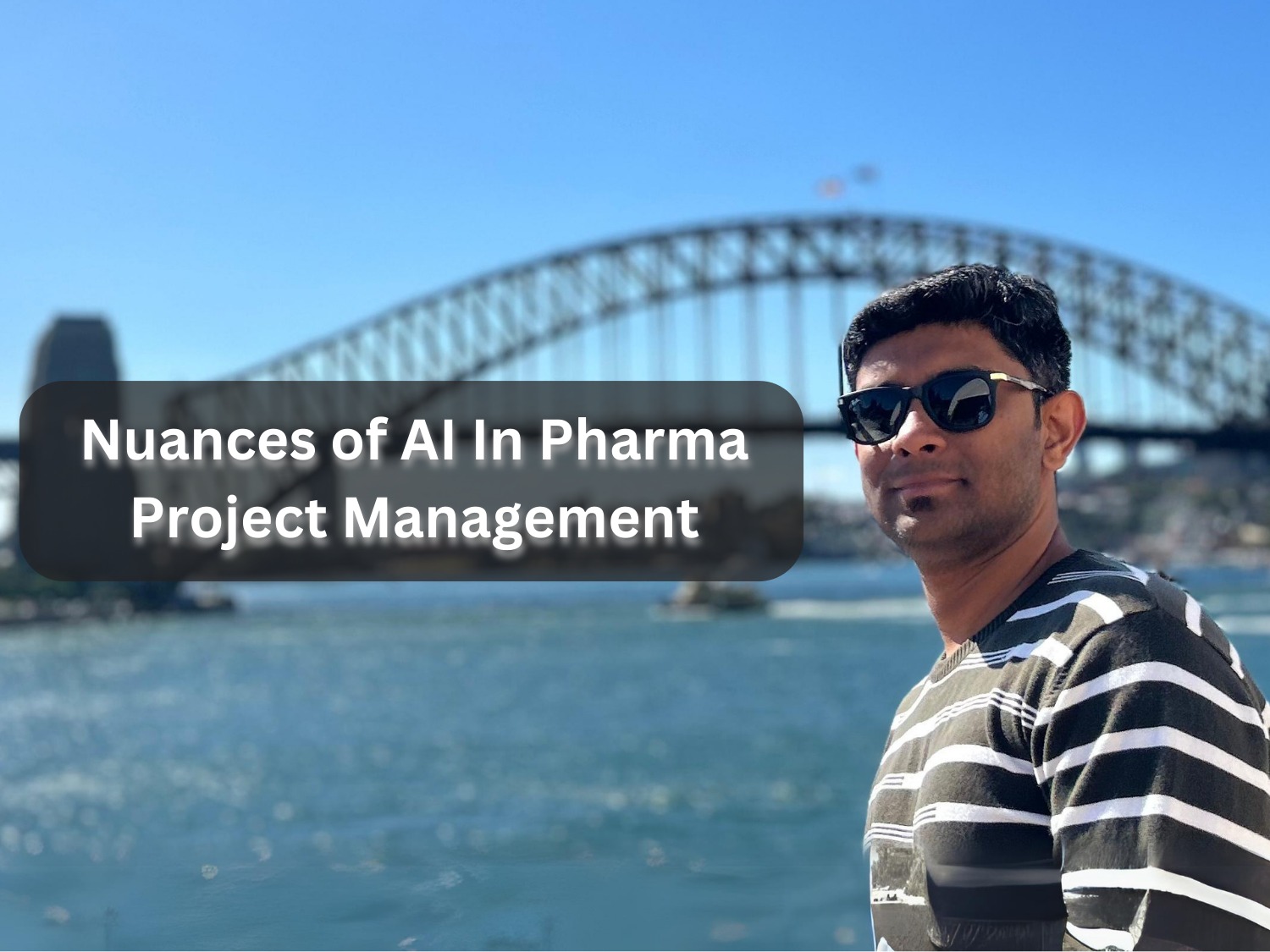
Introduction:
The Pharmaceutical industry is a highly data sensitive, complex and regulated sector that requires effective and continual innovation. The integration of popular Artificial Intelligence (AI) tools from the open market is not a feasible option for Project Management in the Pharma industry. AI can play a pivotal role in the streamlining processes, enhance decision-making, and optimise resource planning. This article explores how AI is reshaping project management in the pharmaceutical sector, offering unprecedented benefits for efficiency, speed, and overall success. At the same time requiring us to tread with caution.
Data-Driven Decisions:
Tons of giga data is needed for AI to learn and provide accurate insights which in turn a Project Manager can use. AI’s ability to process and analyse vast amounts of historical data quickly and accurately, identify patterns, and provide valuable insights can be crucial for a Project Manager. In the pharma industry many different AI related activities are being pursued to help accelerate the drug development process from early discovery through clinical studies and regulatory submissions. All of this will impact project management as we learn how to apply these emerging capabilities to new development of timelines, costs, resources, as well as to identify potential new risks. At the same time, it is critical to consider that most of the initial conversation on feasibility, scope, etc. are subject to confidentiality and may not be suitable to be recorded for AI to process the necessary action. Expertise of a project manager will be critical in the initiation and planning phases to recognize and judge the data required for execution of the project.
Risk Management:
Pharmaceutical projects often involve intricate timelines, strict regulations, and high stakes. AI by analysing historical project data and through predictive analytics can help project manager foresee potential risks and challenges. Permitted, most of the pharma projects are traditional projects with predictive approaches (supposed to be less risky project approach). However, we would still require Subject Matter Experts (SMEs) and local experts to comprehend local nuances, ensuring that risk of schedule and cost delays are accounted for. It could be debated that AI has the competence to comprehend these nuances (from previous projects), but still an overview from the project manager is critical as some of the timelines and costs could have gone up or down due to regulation and technological changes affecting the pharmaceutical industry.
Enhanced Collaboration and Communication:
Effective collaboration determines the success of a project and in pharma, majority of the time it requires cross-functional teams to work together on complex projects. The complexity further multiplies when the project is Global, and resources are working on ‘follow the sun’ model. AI tools can become a life saver for project managers (especially in the execution phase) with their capabilities to facilitate seamless communication and collaboration by providing real-time updates, automated reporting and follow up on tasks. The idea of a smart dashboard that is tracking various KPIs, activities, expenses, competitive landscapes, etc. are perfect for a Project Manager. Rather than “Artificial Intelligence”, “Augmented Intelligence” is fundamental to effective collaboration.
Resource Optimization and Cost Efficiency:
Resource optimization is a critical aspect of pharma projects. AI tools can assist Project Managers to analyze resource utilization patterns, identify bottlenecks, and recommend adjustments to enhance efficiency. By automating repetitive tasks, AI can reduce the risk of human error and allow Project Managers to allocate resources more strategically, ultimately improving cost efficiency. Working on projects with tight timelines, project managers and their teams are bound to work overtime to meet the deadlines. AI with its historical data and predictive capabilities would anticipate the same amount of contribution from resources for similar deliverables, however the circumstances of the resources working on the deliverables could change from time to time. This being the case, it is imperative to be cautious of the emotional fatigue of team members which AI could miss comprehending and this thereby requires a Project Manager’s expertise and capabilities.
Conclusion:
The integration of AI into project management in the pharmaceutical industry represents a significant leap forward in efficiency, innovation, and overall project fruition. From data-driven decision-making to predictive analytics for risk management, AI is transforming how pharmaceutical projects are planned, executed, and monitored. It is my perspective that Pharma could be one industry where AI will not be able to replace Project Managers in the future because of the level of data scrutiny and local nuances we have. Even if AI can automate repetitive project activities, a Project Manager will still need to provide strategic expertise, judgement, and emotional support for the team to be successful in the long run.

